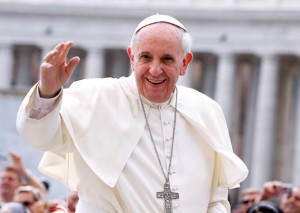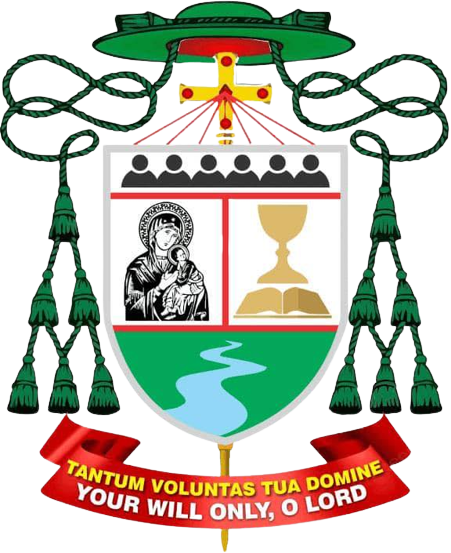Alfred J. Freddoso
Professor of Philosophy
University of Notre Dame
Catholic Dossier, November-December 1998
I confess to a certain reluctance in addressing the topic of the future of the Catholic Church in the 21st century. One occupational hazard for philosophers — or at least for this philosopher — is the tendency to engage in excessive daydreaming about abstract ideals and possible future worlds.This in turn distracts me from fulfilling in the present the joyful burden that the Gospel places on me: to deepen, through prayer and the sacraments, my relationship with the Father, Son, and Holy Spirit; to spread the Good News of salvation to those around me; to sanctify and perfect my professional work and home life; to nurture my wife’s faith, as she nurtures mine; to pass on the precious gift of the Catholic Faith to our children through doctrinal formation and, more importantly, through our example; to build up the community of believers by generously living out time and time again, at the prompting of the Holy Spirit, the ideal of sacrificial love;
and to seek forgiveness for the many times I fail, and fail deliberately, to imitate Jesus in conforming my will to the will of the Father.
Compared to all this, speculation about the future of the Church as an institution pales into insignificance, as do the now tiresome intra-ecclesial disputes of the last thirty years. It’s not that I don’t care about the future of the Church or about defending the truth on the controverted issues. I do indeed; for one thing, this is the time during which my children and my students are growing to maturity. It’s just that I’ve found from hard experience that I have a tendency to be consumed by such issues and in the process to lose my focus on what God is asking of me here and now. And I know that I’m not alone in this.
Given this disclaimer and the level of ignorance it implies, I’m an optimist regarding the short-term future of the Church as an institution, in part because I know something about her past. In a memorable chapter of The Everlasting Man called “The Five Deaths of the Faith” Chesterton recounts a few of the many historical episodes in which the Church was “to all appearances been hollowed out from within by doubt and indifference.” Yet she rose again with a new vigor, for “in every such case, the sons were fanatical for the faith where the fathers had been slack about it.” Is the Church in crisis now? Surely she is in the affluent countries of Europe and to a lesser extent in the United States and Canada. But it has always been thus with the People of God. Israel was in crisis approximately twenty minutes after crossing the Red Sea into the Sinai desert, and so it is even in our own day. Yet God continues to raise up saints — some in likely places, such as the papacy, and others in altogether unlikely places — and the Church not only survives but is renewed.
In the beginning decades of the 21st century I expect the vitality of the Church to be most evident in the Third World–in Asia, Africa, Latin and South America. The Church in these countries will exercise much more influence than it has in the past and will take the lead in setting the apostolic agenda for the Church as a whole. So in addition to talk about properly ecclesiastical missions such as evangelization and religious education, we’ll be hearing more about the economic imperialism of the rich countries; coercive population control programs foisted upon the poor countries; the repression of Catholics in Muslim-dominated countries, to say nothing of China; creative initiatives on the part of lay Catholics to bring about just and peaceful economic development and material improvement for the poor, etc. At the same time, the influence of the Church in the Western countries will wane until the increasingly moribund and xenophobic cultures of death have run their course. One result is that the controversial issues which sometimes seem to dominate discussions among Catholics in the rich countries — e.g., priestly celibacy, non-sexist language, and women’s ordination — are not likely to feature prominently in the mind of the Church universal. Catholics in Third World countries will figure that there are more pressing causes for concern.
A second point is that the 21st century will usher in with earnestness the age of the laity. By this I do not mean an age in which the laity assume more active institutional roles within the Church. Perhaps that will happen, too; but whereas not every lay person is called to fulfill a properly ecclesiastical function, every lay person is, according to Vatican II, called to become holy and to spread the Gospel within secular society. To my mind, the most remarkable recent development within the Church is the emergence of a wide variety of lay movements that define themselves by apostolates within the secular sphere rather than within the domain of the properly ecclesiastical. We haven’t seen anything quite like it since the days of the early Christians. Instead of new religious orders arising to meet new challenges, now it is mainly the laity taking charge within its proper arena. My experience has been that many clerics — especially, but not only, the more liberal ones — do not yet have a very deep understanding of this phenomenon.
What of the Church in the United States? This is a harder call than Western Europe because, despite our many problems, America has significantly more religious energy than Western Europe. I am very encouraged by the influx of Hispanic, Asian, and Eastern European immigrants into the Church in our country, as well as by the spate of recent conversions among Protestant intellectuals and clergymen. The main challenge here is religious education at every level, and especially in preparation for the sacraments of confirmation and marriage. We have not as a community been doing a very good job at this, in part because we are only now realizing just how countercultural our evangelization must be if we are to remain faithful to Christ. This very same diagnosis applies, I believe, to Catholic higher education in this country. The future is very uncertain here, and my fear is that genuine and deep-rooted renewal is unlikely among those many well-established Catholic colleges and universities that have as institutions lost their Way, not to mention their Truth and their Life. Yet, despite all this, I am less concerned than some about the younger generations of Catholics. If my experience at Notre Dame is any indication, there is no lack of generosity or apostolic zeal among young Catholic men and women, especially when one compares them to Catholics of my own baby-boom generation. They will be the main players in the “springtime of Christianity” that Pope John Paul foresees in the 21st century, and I for one am certain that they will be more responsive to the promptings of the Holy Spirit than my generation has been.

Nice write up